Every year, I spend a shocking amount of time watching as many of the Oscar nominees as I can possibly make time for. At the very least, I attempt to watch all of the Best Picture nominees, but I usually watch anything nominated in the acting, directing, or writing categories as well. Oscar-nominated films have about a 50/50 success rate with me, and usually there are at least a few nominees that bore me to tears, and force me to re-evaluate the reasons why I put myself through this every year. Last year’s Hacksaw Ridge and Fences come to mind.
This list will be in reverse order, so number 9 is the Best Picture nominee that I found most insufferable, and number 1 is my personal favorite. It is not intended to be a prediction of what film will actually take home the Oscar.
9. Darkest Hour
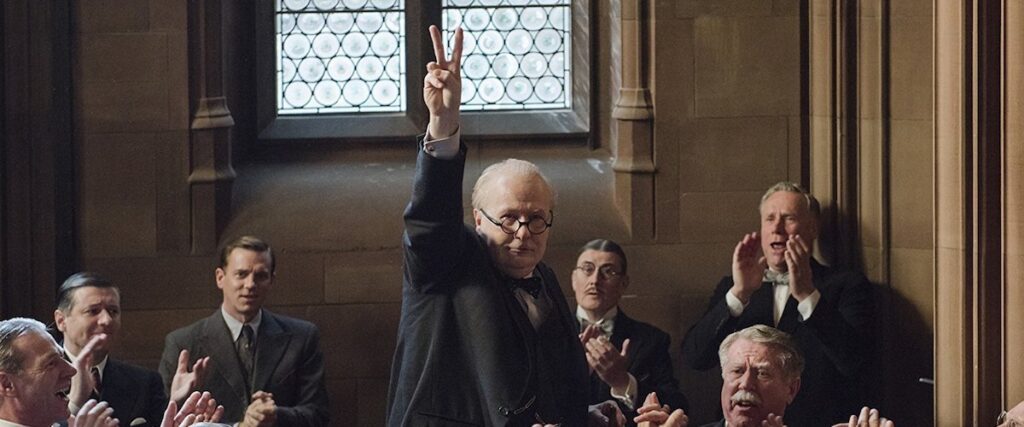
Ugh. The Oscars bit down hard on their bait this year by nominating a total snore-fest about Winston Churchill. Gary Oldman manages to bring some life into this ugly film by delivering a fantastic performance as Churchill.
The film’s color palette is that dull brownish tone that screams, “THIS IS WORLD WAR II!” Every supporting character is boring and utterly unremarkable. It becomes very obvious from the beginning that the entire film is haphazardly put together, with the exception of recreating Winston Churchill. It’s the same cynical award-monger mentality we see every year around this time, with a cast and crew who exist solely to contribute to Oldman’s Oscar bid. Oldman’s performance is the only thing worth a damn in this entire movie, and in spite of my deep hatred for this sort of film, he’s great. If you really want to see someone try desperately to recreate Churchill with some success, you’re far less likely to gripe about the sections of the film that involve watching paint dry. Personally, I did not ask for a Churchill movie, so Darkest Hour can go to hell.
My only complaint about Churchill’s character is really more of a screenplay issue. In particular, it’s a single scene where Churchill is riding a train like a filthy commoner. He’s unsure what to do about the current political situation, so he asks for the opinions of several passengers on this train. They each respond predictably; with patriotic zeal and saccharine monologues. He uses this input to make an important political decision. This scene is not only obviously fabricated (or grossly exaggerated) but painfully inconsistent with the rest of the movie. It was a fairly obvious attempt at creating a climax in a story without one, and it made my stomach churn.
8. Dunkirk

It took me 3 or 4 tries to actually finish Dunkirk. The first two times I fell asleep within 15 to 20 minutes, and the third time I gave up out of frustration. I was somewhat perturbed by its Best Picture nomination, because that meant I’d have to sit through the whole damn movie. By the time I finally watched it all the way through, I had given up any hope of enjoying myself.
The biggest takeaway I’ve heard from other people is that it simply NEEDS to be seen in a theater. Most of the time, I ignore this disclaimer, but I’m actually inclined to agree. Its sound design is rather excellent, and while I wouldn’t call it visually “stunning,” I would say the cinematography is clearly geared toward the immersion brought on by an IMAX screen. As I continue, keep in mind that I watched Dunkirk at home.
My first and only all-the-way-through viewing of Dunkirk softened me to the film a bit. As a rule, it takes a hell of a lot for a war film to keep my attention. Dunkirk at least managed to entertain a bit once I passed the 30-minute mark, and I could easily identify aspects of the film that I was missing out on by lying in bed like a vegetable rather than sitting in a theater.
However, the thrill of the cinematic experience cannot take away the fact that there are no characters in Dunkirk. Everyone is exceptionally wooden, and I feel like the sound design is so integral to the film only because of the immense failure on the writer’s part to develop a single character, make any of them relatable, or provide us with any compelling dialog. I’ve heard critics describe this as a stylistic choice intended to make every character an audience surrogate, further increasing immersion, but I call bullshit. Dunkirk was written and directed by Christopher Nolan, who is notorious for writing characters that are typically nothing more than exposition-spewing archetypes, with all the complexity of a ham sandwich.
Speaking of Christopher Nolan, I’ve always had issues with the way he deals with expository dialog. Nearly 80% of Inception was, “Here’s rule A, here’s how it affects the plot, here’s what we’re about to do. Here’s rule B….” and so on and so forth. Going into Dunkirk, I expected a talky war drama, because it would be very typical for Nolan’s characters to lack the ability to shut up and allow the audience to figure out what’s going on for themselves. Instead, Dunkirk is nearly a silent film, but EVERY LINE OF DIALOG SPOKEN is that same pandering Christopher Nolan bullshit expository dialog that I just can’t get over.
But hey, it’s a war film. It isn’t made for me.
7. The Post
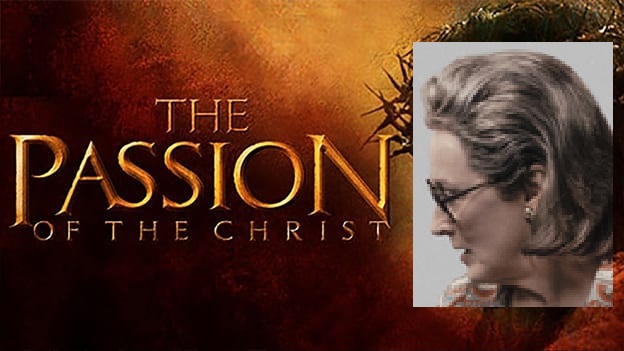
The Post is the most Oscar-baity nominee this year aside from Darkest Hour. When I first became aware of its existence, the first thought that ran through my mind was, “This is going to be nominated for all of the Oscars.” Thankfully, that didn’t happen, but it sure checks a ton of boxes on the Oscar-bait checklist. It was directed by Spielberg, it involves Meryl Streep, it’s based on a historical event, it tackles hot-button social issues, it’s about overcoming overwhelming odds, and it looks a bit like Spotlight. None of this was enough to bring front-runner attention to The Post. For a film that looks like such an obvious Best Picture candidate on the surface, it sure is a rather mediocre movie.
The Post is basically a prequel to All the President’s Men, and follows the leak of the McNamara-Taylor report and the Washington Post’s struggle in deciding whether or not to publish these leaks. The revered Meryl Streep is the current owner of the Washington Post, who inherited it through the passing of her late husband. Streep is by far the most problematic character in the movie.
When an industry giant like Meryl Streep, notorious for playing strong female characters, is cast as a rather meek woman, I have a very, very hard time believing that character. Streep is surrounded by men with overbearing personalities that believe they know what’s best for the future of The Post, and absolutely resent the fact that Streep ultimately has the final say in every decision. Yes, it’s because she’s a woman. There is (in my opinion) an excessive amount of screen time dedicated to Streep being interrupted, doubted, and publicly berated, but the issue isn’t explored or resolved in an interesting way. This indicates to me that Spielberg knew he had Meryl Fucking Streep at his disposal, and had to use her as much as possible. The ways in which men invalidate her quickly become repetitive, and I was taken out of the film about halfway through, when it becomes “The Passion of Meryl Streep.” Even more troubling is the fact that, this year, stories of marginalized women have become incredibly trendy, and it’s a sub-plot (or arguably, A-plot) that this story didn’t need at all. To make matters worse, toward the end of the film, a woman we have never been introduced to appears before Streep to tell her how inspiring she is as a woman. Because I NEEDED to be backhanded with that message AGAIN.
In spite of the woman-hating and on-the-nose social commentary, The Post manages to build a decent amount of suspense for a film that’s based on a true story, like Spotlight before it. At the very least, it wasn’t as treacherously boring as its premise promises to be.
6. Call Me by Your Name

Call Me By Your Name is the homosexual equivalent of Linklater’s Before Sunrise, telling the story of a fleeting but oft-remembered fling between two characters that are destined to be apart. I would be entirely unsurprised if these characters reunited in another nine years.
Call Me By Your Name comes to us from Luca Guadagnino, director of 2015’s remake of La Piscine, A Bigger Splash. I was a much bigger fan of A Bigger Splash than I expected, which gave me hope for the Italian director. Call Me By Your Name is similar in quite a few ways, one of which is the overall feeling you’re left with after the film ends. The best way to put it into words: “That was almost something great. Almost.”
The film is a romance between 17-year-old Elio and 24-year-old Oliver, played respectively by Timothée Chalamet and Armie Hammer. On paper, 17 and 24 seem reasonably close together. One of those relationships that counts as “just barely statutory rape.” In practice, Chalamet looks 15 at most, and Hammer looks between 30 and 35. I misheard Oliver’s age while watching the film, and was convinced he was 34 until after it was over, although it had little impact on my viewing experience. Still, the perceived age difference of the actors made it incredibly jarring to watch closeted Oliver as he’s aggressively pursued by Elio. I didn’t ever feel “dirty,” but I did spend entirely too much time thinking about the ethical implications of their relationship, something the film clearly wants you to do just a few times before you realize that THEIR LOVE IS BEAUTIFUL AND IT DOESN’T MATTER! Call Me By Your Name is too understated and wishy-washy to be an examination of age differences in relationships, but it’s a sweet little romance and relatively well-crafted.
Whether Guadagnino is an emerging talented director or a one-trick pony will be determined later this year, when his remake of 1977’s classic Italian horror film, Suspiria, hits theaters.
5. Get Out
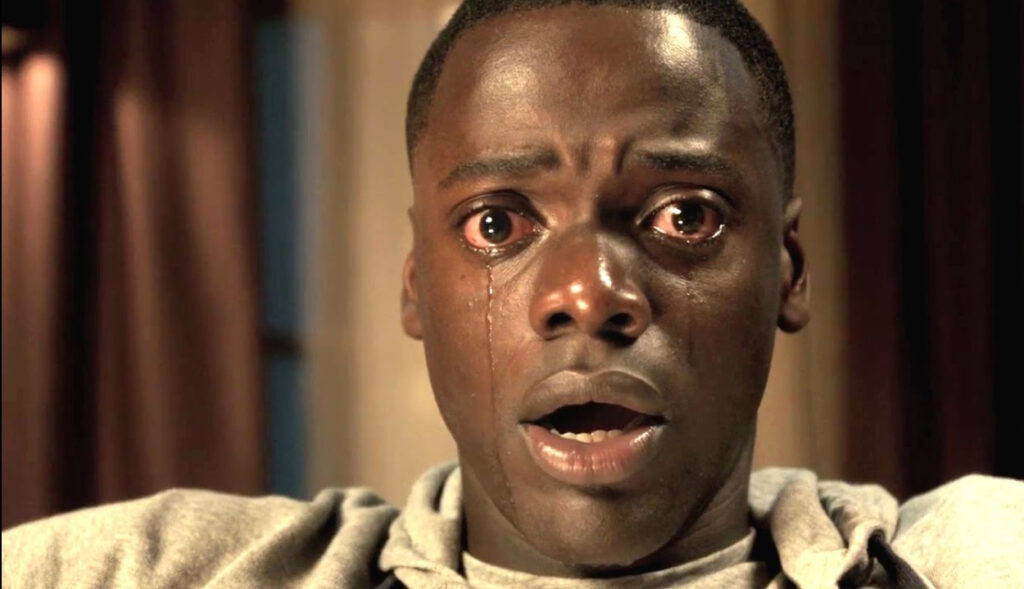
Get Out is something of an anomaly in the world of Best Picture nominees. It’s a horror film, it has comedic elements, it was released early in the year, and it made a significant amount at the box office. Historically, the Academy has frowned upon genre films, but Get Out’s thinly-veiled social commentary apparently qualifies it as Best Picture material.
With an interesting premise that would sound asinine on paper, Get Out manages to thoroughly entertain, while trying too hard to inform. There are times when it feels rather heavy-handed, and sometimes the allegory is so apparent that the characters feel less like people and more like vehicles to drive the overall metaphor. Still, the nomination is quite notable, and hopefully it paves the way for more interesting genre film nominations in the future.
My criticism of Get Out’s on-the-nose allegory may seem to indicate that I didn’t much care for the film, but this wasn’t the case. In fact, it made its way onto my Top Ten Films of 2017.
4. The Shape of Water

I feel like we should probably stop describing The Shape of Water as “the fish-fucking movie,” but that’s largely what it will be remembered for, rightly or not.
Guillermo Del Toro has finally come to his senses, and has given us his best film since Pan’s Labyrinth by a rather significant margin. Del Toro has spent the last 10+ years as the guy you attach as “executive producer” if you want to play up the creature effects in your film, just as you’d attach J. J. Abrams if you wanted pop-sci-fi credibility, or if you’ve made the unfortunate decision to reboot something. Over the years, Del Toro has demonstrated rather inconsistent writing and directing skills, but his knack for incorporating special effects has never been in question. The Shape of Water is set apart by the sense that its special effects exist to support the narrative, rather than the sense that Del Toro had a Creature From The Black Lagoon costume in his closet that he’s been dying to use.
Sally Hawkins is decent as the mute who falls in love with the fish-person who resides in a tank at the top-secret government facility that she routinely mops. She manages to subtly portray many of the challenges that go along with her disability, without going full Patty Duke in The Miracle Worker. Richard Jenkins is her gay best friend and roommate, and while he and Octavia Spencer were nominated this year alongside Hawkins, the only other actor who deserves a nomination here is Michael Shannon. As always, Shannon plays a compelling villain, and his scenes with Sally Hawkins are easily my favorite in the film.
I don’t have too much to say about The Shape of Water, except that, ultimately, it felt rather slight and inconsequential. It’s well-made, but it didn’t evoke much emotion on my part. For a movie about fish-fucking, it’s rather innocuous, and I feel like that can only help its chances at the Oscars.
3. Lady Bird

I am a sucker for coming-of-age dramedies, Greta Gerwig, and Saoirse Ronan. I loved every second of Lady Bird, but I have a hard time describing exactly why. I enjoyed the dialog. I loved the pacing. I loved each character in spite of their tragic flaws. And yet, the only thing to really stick out was the writer/director’s style. This movie reeks of Gerwig, and that’s going to be a deal-breaker for some.
The biggest hurdle will likely be Lady Bird’s borderline-obnoxious characters, but what makes it work is how strong each characters’ arc is. Lady Bird herself is an entitled brat for most of the film, but the clear trajectory of her character alleviates any complaints I’d have about that, and left me feeling as if I’d watched her grow up from afar. Whether or not that redemption is enough to make the film tolerable is going to vary quite a bit viewer-by-viewer, and if the phrase “coming-of-age” makes you instinctively groan, Lady Bird isn’t for you.
2. Three Billboards Outside Ebbing, Missouri
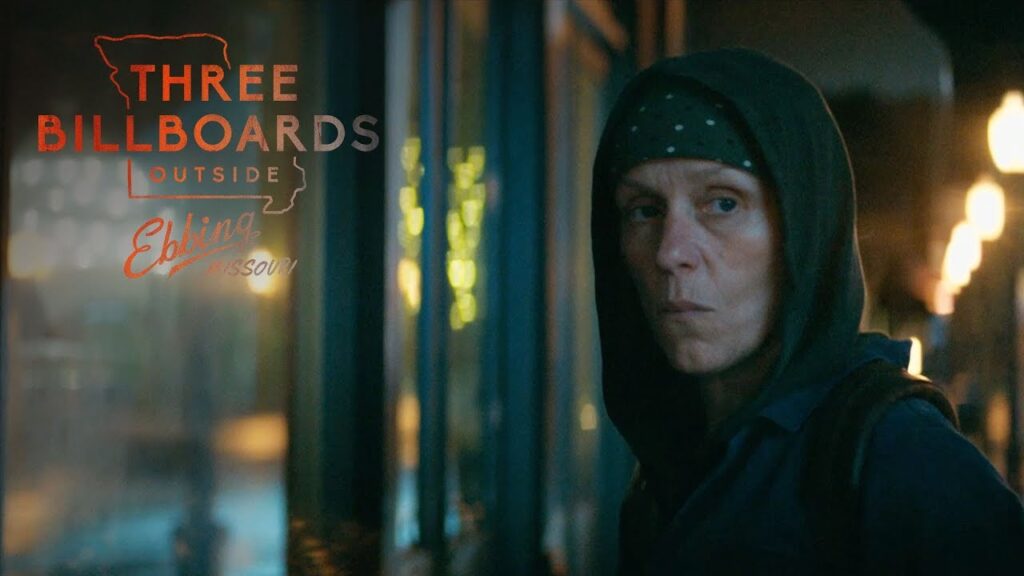
My full review of Three Billboards, which quickly devolves into an essay about why Caleb Landry Jones is so awesome, can be found here.
Several months ago, I declared this the front-runner for the Oscar for Best Picture, and while that’s not necessarily true as of the publishing of this article, I’m still hoping it wins. It’s one of the few truly great films to be nominated this year, and the only great film with an actual shot at a Best Picture Oscar. Still, there was one nominee I loved even more…
1. Phantom Thread
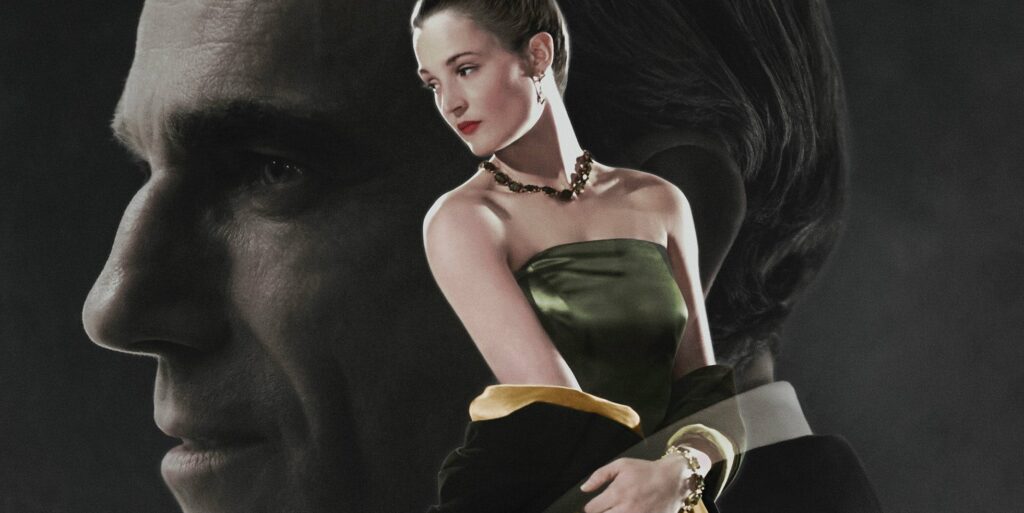
I’m shocked at how much I loved Phantom Thread, and I really shouldn’t be. Paul Thomas Anderson (who has yet to direct a film I haven’t loved) collaborates once more with Johnny Greenwood of Radiohead. The result is easily my favorite film score this year, and perhaps this decade.
Phantom Thread is an unconventional romance told in a somewhat conventional way. It’s a fantastic example of why PTA is such a great director. He’s taken what could have been a boring Masterpiece Theater-esque period drama and made it something truly amazing by providing nuance to the story, and adding a dash of excellent cinematography as per usual. Of course, the acting is fantastic as well.
There is one element of Phantom Thread that’s going to make or break the experience for most viewers, and it’s jarring enough that you already know what I’m talking about if you’ve seen it. I can understand being turned off by this particular plot point, but for me, this made for the perfect third act. It’s rather offbeat, but it kept me thinking about the entire film long after it was over. In fact, it brought my Oscar marathon to a grinding halt, because it’s difficult to concentrate on lesser films when I’d rather be thinking about Phantom Thread. This forced me to sit down and watch it a second time, and I think I appreciated my second watch even more than the first. The finale leaves the audience with quite a bit to unpack emotionally, and lingers in the back of your mind in the most wonderful way.
This year has generally been a decent year for film and for the Oscars. There are only a few nominations that fill me with rage (The Boss Baby and Roman J. Israel Esquire, basically) and that’s a pretty decent omen.